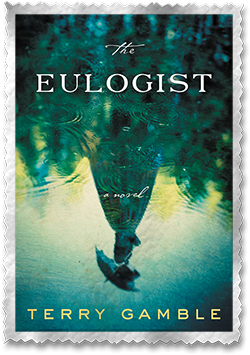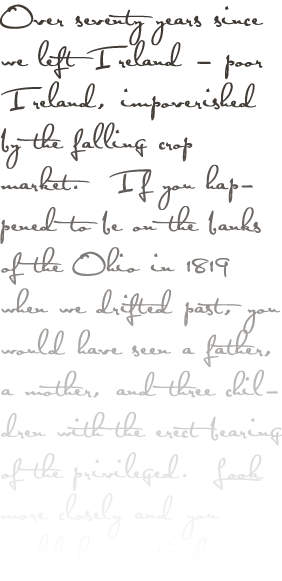|
|
|
|
|
|||||||||||
|
|
||||||||||||||
|
|
|
|
||||||||||||
|
|
|
|
|
|
|
|
|
|
|
|
|
|
|
|

Cheated out of their family estate in Northern Ireland after the Napoleonic Wars, the Givens family arrives in America in 1819. But in coming to this new land, they have lost nearly everything. Making their way west they settle in Cincinnati, a burgeoning town on the banks of the mighty Ohio River whose rise, like the Givenses’ own, will be fashioned by the colliding forces of Jacksonian populism, religious evangelism, industrial capitalism, and the struggle for emancipation.
When her husband suddenly dies from an infection, Olivia travels to his family home in Kentucky, where she meets his estranged brother and encounters the horrors of slavery firsthand. After abetting the escape of one slave, Olivia is forced to confront the status of a young woman named Tilly, another slave owned by Olivia’s brother-in-law. When her attempt to help Tilly ends in disaster, Olivia tracks down Erasmus, who has begun smuggling runaways across the river—the borderline between freedom and slavery.
In taut, delicate, and moving prose, Terry Gamble takes measure of the tremors from nineteenth-century America—a time of displacement, change, religious zeal, and divided mores—that transformed society and continue to shake our nation. Through the experiences of one remarkable family, she brilliantly illuminates the divisive yet indelible cultural strands—race, religion, migration, the yearning for independence, and the right to be free—that have shaped us and make us who we are today.
|
 
|
|